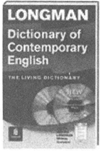题目内容
Most dictionaries will tell you a number of things about a language. There are three important things. The three things are spelling, pronunciation
(发音)and meanings.First, a dictionary will tell you the spelling of a word. If you are not sure about the spelling of a word, you can try to find the correct spelling in a dictionary. Words are listed in alphabetical order
(按字母顺序)--a, b, c and so on. For example, on a dictionary page the word“poor”--p, o, o, r --comes before“poverty”--p, o, v, e, r, t, y --and the word“poverty”comes before the word“power”--p, o, w, e, r. The words are always given in alphabetical order.The second thing, a dictionary will tell you pronunciation. Most dictionaries give phonetic
(语的),or sound, alphabet. The phonetic spelling will tell you how a word is pronounced. There are a few different phonetic alphabets. Many dictionaries use the International(国际的)Phonetic Alphabet to show pronunciation.The third thing, a dictionary will tell you the meaning of words. You can look up a word and find out what it means. Many words have more than one meaning, and a good dictionary will tell you all of the word's meanings. For example, in English the common word
“get”has over 20 different meanings.
(1
)In the passage, which of the following is among the three important things?[ ]
A
.How to write a word well.B
.How to use a word.C
.How to make a sentence.D
.How to read a word correctly.(2
)Of the three words“remove”,“remote”and“remount”, ________ in a dictionary.[ ]
A
.“remount”comes first and“remove”comes lastB
.“remove”first and“remote”lastC
.“remote”first and“remove”lastD
.“remove”first and“remount”last(3
)Many words have ________.[ ]
|
A .several meanings |
B .few meanings |
|
C .one meaning |
D .no meaning |
(4
)A better dictionary can tell you ________.[ ]
A
.more of the word's pronunciationB
.more of grammarC
.more of the word's meaningsD
.more of the word's spelling(5
)Phonetic alphabets are used to show ________.[ ]
|
A .spelling |
B .handwriting |
|
C .meanings |
D .pronunciation |

46 blind, deaf, unable to walk or use your hands easily is something that most people can’t imagine. But many people 47 these challenges 48 Liz Smith. Liz can’t use her arms or legs well, and normal things like answering the telephone,opening and 49 the door or carrying things have always been difficult for her.Then one day last year,a friend of her said that she would like to help her out. She talked to “Animal Helpers ” to see if it would be possible for her to get a specially 50 dog.
51 six months of training with a dog at “Animal Helpers”, Liz smith was able to 52 him home. Her dog’s name is “Lucky” --- a good name for him 53 Liz feels lucky to have him.
54 does Lucky help her? Well, he has been trained to understand many different 55 .For example, when Liz says, “Lucky, fetch my book!” and he 56 at once. He is very clever and understands many English words ,57 some difficult 58 like “upstaris”.
“Animals Helpers” is an organization 59 to help disabled people .60 is very important that it doesn’t run out of money. The donation is greatly appreciated and the money is well used to help disabled people like Liz.
| 【小题1】 |
|
| 【小题2】 |
|
| 【小题3】 |
|
| 【小题4】 |
|
| 【小题5】 |
|
| 【小题7】 |
|
| 【小题8】 |
|
| 【小题9】 |
|
| 【小题11】 |
|
| 【小题12】 |
|
| 【小题13】 |
|
| 【小题14】 |
|
| 【小题15】 |
|
The American Museum of Natural History Address: Central Park West at 79th, St., New York Tel: 212-769-5100 Traffic: located on the Upper West Sideof Manhattan, the museumis conveniently reached by bus, underground or car. Parking: There is a small parking place which charges only $7.75 per day, but is often full. Parking in the neighborhood is also limited. Museum hours: 10:00 am to 5:45 pm Sunday through Tuesday; 10:00 am to 9:00 pm Wednesday, Thursday, Friday, and Saturday. Admission: $3.20 for grown-ups, one-fourth for children, and free on Friday and Saturday evening from 5:00 pm to 9:00 pm. The museum is open every day of the year except Christmas and Thanksgiving. |
| A.Philadelphie | B.Washington |
| C.Boston | D.New York |
| A.people cannot park their cars there |
| B.it is not big enough to park all the cars |
| C.it will cost you $7.75 per week |
| D.nobody wants to park his car there |
| A.$16 | B.$19.2 | C.$25.6 | D.no money |
| A.at 7:00 am on Monday |
| B.at 8:00 pm on Tuesday |
| C.at 11:00 am on Sunday |
| D.at 10:00 pm on Friday |
| A.the museum lies in the east of New York |
| B.the small parking place charges more than $8 a day for a car |
| C.one can get to the museum by car, by under-ground or by bus |
| D.the museum is the most popular one in America |